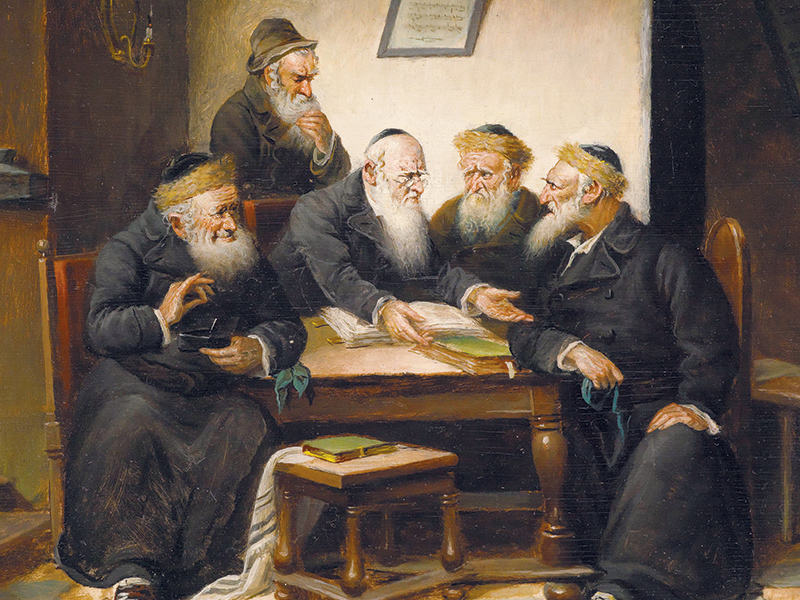Great men do great things. Thomas Carlyle argued for the “Great Man” theory of history, that “the history of the world is but the biography of great men.” Others debate this idea and see the great leaders of history as merely a product of their society. (Note: the phrase “Great Man” is not meant as a reference to character, but rather to a person’s impact). The last century offers ample proof for the “Great Man” theory. Milton Himmelfarb wrote an essay titled “No Hitler, No Holocaust,” in which he explains that “Anti-Semitism was a necessary condition for the Holocaust, but it was not a sufficient condition. Hitler was needed.” This is indisputable; the Holocaust is inconceivable without Hitler. Larger-than-life individuals play a unique role in determining the course of history.
Great Man theory is a staple of the Tanach’s narrative. For much of the Tanach, central characters such as Abraham, Moses, and David take the stage and direct the course of action. To this day, Jewish liturgy mentions these transformative leaders more than anyone else.
However, Great Man theory is more than an explanation of history. Greatness is also our highest aspiration. Maimonides (Deuteronomy 3:3) makes a telling remark about child rearing when he says: “You should consider that you may have a child who will be a wise and great man in Israel.” This is the Great Man theory of child rearing: our parental expectations are geared to greatness.
The comedian David Bader highlights this in a short haiku entitled The Jewish Mother’s Lament: “Is one Nobel Prize so much to ask from a child after all I’ve done?”
This is why the fascinating chassidic tradition about the “lamedvuvniks” is so important. The lamedvuvnik is one of the 36 hidden righteous men upon whose shoulders the fate of the world rests. They appear like ordinary men and live ordinary lives, yet they do extraordinary things. In undertaking one important act of charity, these otherwise ordinary Joes save the world.
READ: HEBREW ACADEMY STUDENTS ENCOURAGED TO ‘BE A MENSCH’
Paradoxically, the chassidic movement, which is oriented around the tzaddik, the ultimate Great Man, promotes the simple lamedvuvnik. But perhaps that’s the point. Even when appreciating great heroes, the contributions of everyday heroes should never be overlooked. The beauty of the lamedvuvnik tradition is that anyone might be great, and the gruff, grizzled and wrinkled water carrier might be holding the fate of the world on his shoulders.
This lesson is extremely relevant in the 21st century. We live in an age that obsesses with greatness. Jean Twenge writes in her book Generation Me: “In the 1950s, 12 per cent of high school seniors said they were a ‘very important person.’ By the ’90s, 80 per cent said they believed that they were.” Everybody expects to be great and famous, which makes it difficult to be content with living ordinary, but good lives.
Parents feel this strain in particular when being pulled between career and family. Anne Marie Slaughter wrote Unfinished Business: Women Men Work Family to respond to authors who argued that, with planning, working mothers can have it all. Slaughter passionately responds that they can’t. Thankfully, the lesson of the lamedvuvnik is you don’t need to have it all, and you don’t need to be great to be great.
The lamedvuvnik life is about changing the world, one person at a time. George Elliot expresses this idea beautifully when she writes in Middlemarch: A Study of Provincial Life: “The growing good of the world is… half owing to the number who lived faithfully a hidden life, and rest in unvisited tombs.”
In the course of our lives, every one of us has met our own, personal lamedvuvnik: a parent, teacher, friend or even stranger who has made an enormous difference in our lives. And they make that difference just by being good, over and over again.
Sometimes, you can be great just by being good.
